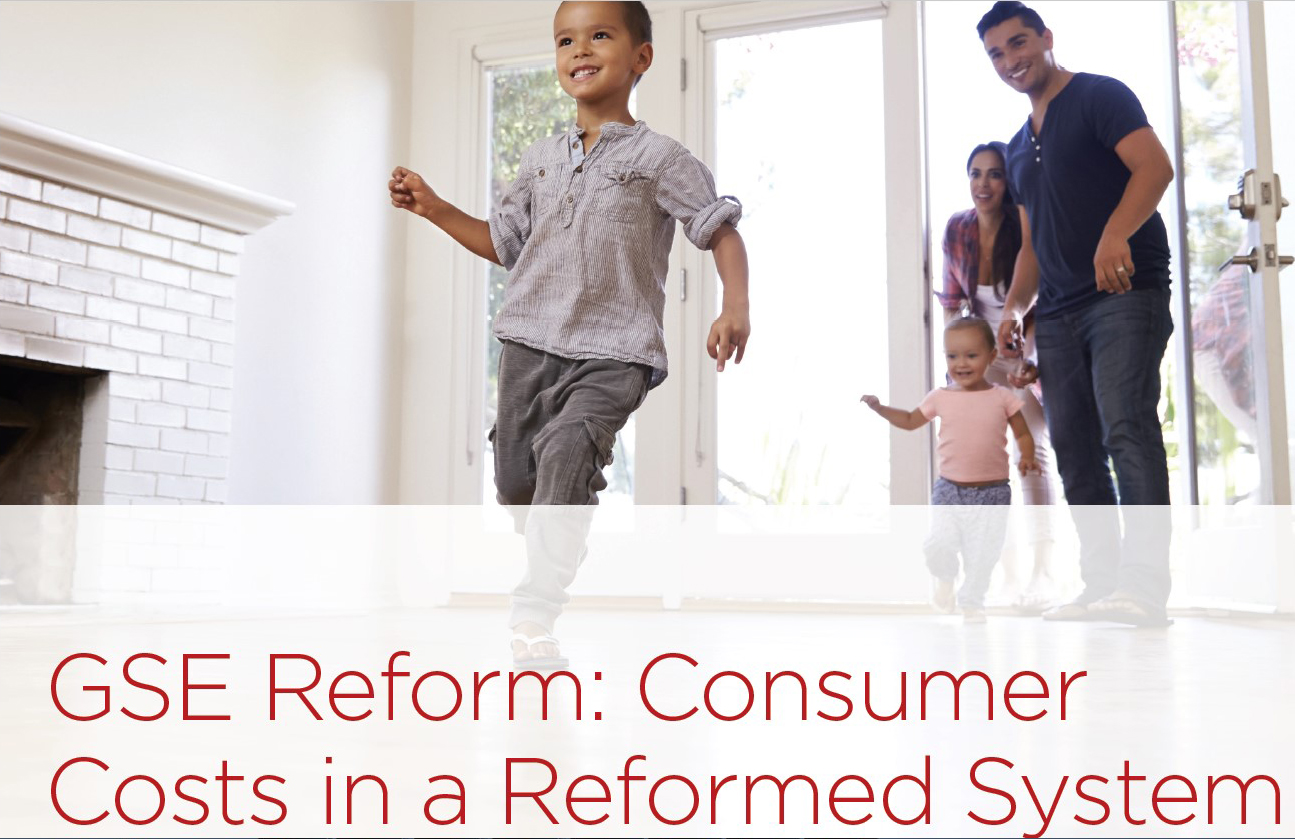
New MBA Paper Examines Consumer Costs & GSE Reform
Following up on its landmark proposal for GSE reform in April, the Mortgage Bankers Association last week issued a companion piece, detailing how MBA’s plan to build a stable foundation for the secondary mortgage market would impact borrowers in the single-family market.
The paper, GSE Reform: Consumer Costs in a Reformed System, examines three key objectives: protecting taxpayers, attracting capital to Guarantors and ensuring consumers and borrowers have access to affordable financing.
 “MBA understands that certain stakeholders are primarily concerned with the impact of housing finance reform on consumer costs,” the paper said. “This analysis reviews the different components of reform that may impact consumer costs and concludes that costs under the MBA proposal are likely to be quite similar to those seen in the mortgage market today. Whether costs are modestly higher or lower will depend on how the different components noted here are determined through the political process, but stakeholders concerned with consumer costs should not forget that a more stable system, as envisioned in MBA’s proposal, has benefits for consumers, as it ensures that borrowers can get loans even during downturns and periods of market disruption.”
“MBA understands that certain stakeholders are primarily concerned with the impact of housing finance reform on consumer costs,” the paper said. “This analysis reviews the different components of reform that may impact consumer costs and concludes that costs under the MBA proposal are likely to be quite similar to those seen in the mortgage market today. Whether costs are modestly higher or lower will depend on how the different components noted here are determined through the political process, but stakeholders concerned with consumer costs should not forget that a more stable system, as envisioned in MBA’s proposal, has benefits for consumers, as it ensures that borrowers can get loans even during downturns and periods of market disruption.”
The paper is a follow up to MBA’s April White Paper, Creating a Sustainable, More Vibrant Secondary Mortgage Market (https://www.mba.org/issues/gse-reform), which presents MBA’s recommended approach to GSE reform. It outlines the key principles and guardrails that should guide the reform effort and provides a detailed picture of a new secondary-market end state. It also attempts to shed light on two critical areas that have tested past reform efforts–the appropriate transition to the post-GSE system and the role of the secondary market in advancing an affordable housing strategy.
MBA notes the difficulty in arriving at a precise estimate with respect to consumer cost is that several components of housing finance reform actively under debate will impact costs. Until these debates are resolved, MBA said, “it is impossible to be confident about the total impact on cost.”
MBA identified six factors under debate that will impact consumer costs:
–A full faith and credit guarantee behind mortgage-backed securities,
–Guarantor capital requirements, return targets and pricing behavior,
–Mortgage Insurance Fund premiums,
–Affordable housing fees,
–The credit box, and
–Capital requirements for MBS investors.
“Beyond the impact for average pricing, changes in any of these factors could lead to differential changes in costs for stronger vs. weaker credit borrowers,” MBA said. “However, when examining the potential impact of future pricing on different subsets of borrowers, it is critical to remember that today the GSEs are not reaching many first-time homebuyers given their current pricing structure. For many borrowers with less than perfect credit, FHA offers a competitive or lower all-in cost. This is true even for the GSEs’ affordable housing initiatives.”
MBA said the ultimate impact on consumer costs from housing finance reform will be a function of a large number of factors that are to be decided through the legislative debate.
“MBA expects that the lower costs resulting from the explicit guarantee behind the MBS will largely if not completely offset the higher costs that are a function of more rigorous capital requirements, the MIF premium and affordable housing fees,” the paper said “Other factors, including the business model of the Guarantors, which will impact required returns, the credit standards for the new system and potential changes to bank regulatory treatment of conventional MBS, will also have an impact. Balancing taxpayer protection, investor returns and consumer costs is critical to realizing a more stable housing finance system going forward. MBA looks forward to continuing to contribute to all aspects of this debate.”
